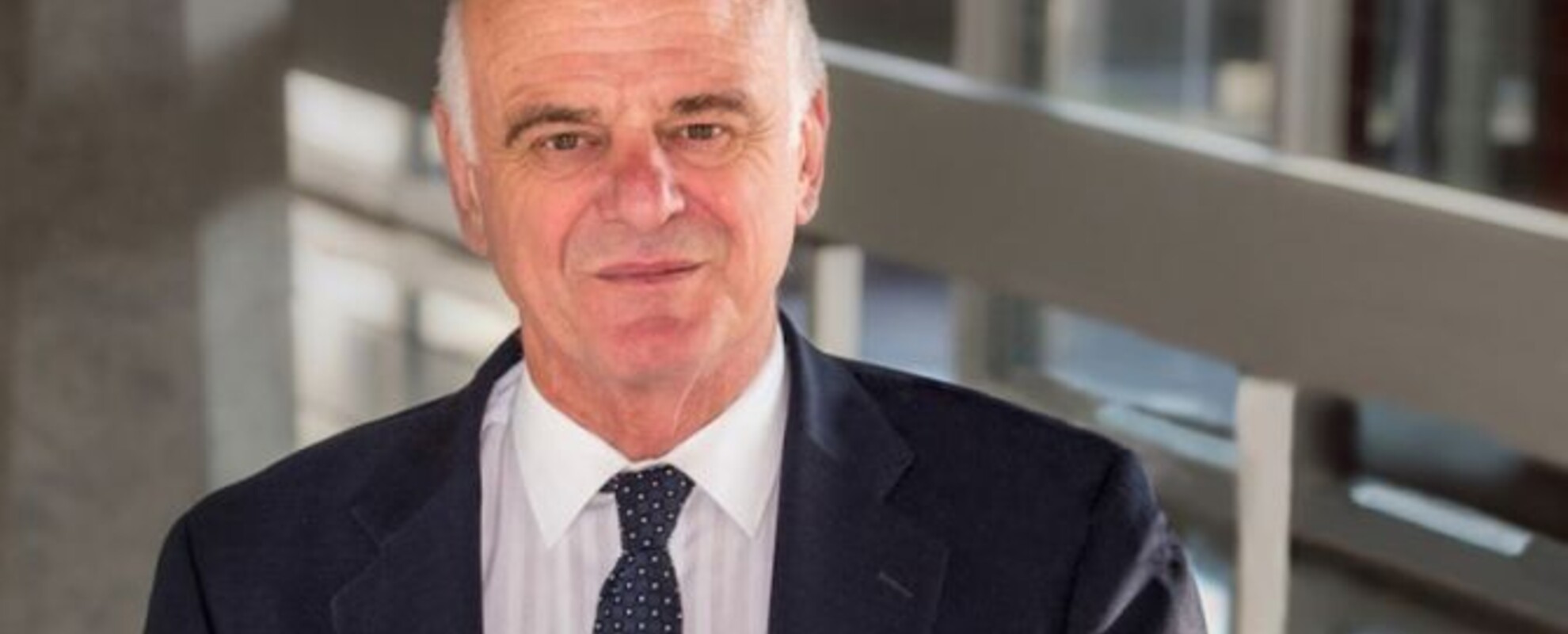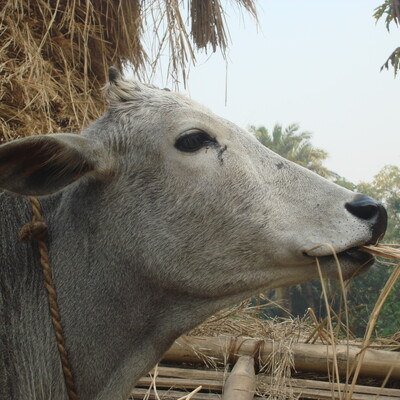
‘A chance to reimagine life in a way that creates greater dignity for all’
In a spirited and at times defiantly hopeful presentation at the International Livestock Research Institute’s (ILRI) weekly digital town hall meeting on 14 May, David Nabarro, a special envoy to the World Health Organization (WHO) Director General on COVID-19, called the virus causing the disease ‘beastly’ and ‘single-minded’, but said that the pandemic ultimately represents an ‘opportunity that many of us believe was there waiting for humanity to demonstrate its strength’.
Nabarro, a British medical doctor who has held a succession of high-level posts in the international civil service, spoke at the invitation of ILRI Director General Jimmy Smith, with whom he worked for years on pandemic prevention and relief. ‘I’m here because of my relationship with Jimmy’, said Nabarro—and also, he said, because of what ILRI stands for: ‘Livestock are the source of savings and security, nutrition and wellbeing for many billions of people. They are the heart of agriculture systems, everywhere’.
Nabarro and Smith first met in 2006, when Nabarro, then at the UN, and Smith, then at the World Bank, worked together to make sure that avian influenza did not become a global pandemic. In retrospect, he said, they were successful not only at helping contain the disease, but also at enabling the world forge a greater understanding of zoonotic diseases. This work prompted serious consideration of the One Health movement. One Health has emerged as a pillar of the global agenda in combatting future pandemics. It is based on the premise that animal and human health and the ecosystems they share are inextricably linked and must be addressed together.
Nabarro began his presentation by briefly reviewing what is known about the disease. It is capable of causing massive suffering, he said, and targets with particular virulence the elderly, those with concomitant diseases, the poor and the imprisoned. While it is not as lethal as some zoonotic diseases such as Ebola, it surprises us all the time, because it’s capable of causing different kinds of pathology, not just respiratory, but also immune system overreactions known as cytokine storms and clotting complications.
COVID-19 is not going away anytime soon, and to combat a disease as stealthy and dangerous as it requires humanity to act as one and to engage in a ‘massive collective learning experience’. Countries like Germany, Vietnam, Singapore and South Korea, which have learned to contain this disease, have been able to test, trace, and isolate—test people, trace their social contacts, and isolate the infected and their contacts. And if the disease has already spread widely, said Nabarro, then movement restrictions, meant to localize the virus, are the most effective response. But basic public health capacities are essential.
In many countries, however, such policy prescriptions are easier to deliver than enact. Over the last few decades, he said, investment in public health has dropped. Instead, health budgets have been put into hospitals, and public health has become the poor relation. Dense urban populations present an additional challenge in some countries, particularly in the global south. And he cautioned against posing the dilemma in either/or terms: ‘It’s a false choice to say surveillance versus liberty. You’re going to have to have tighter population surveillance in order to find people who are sick and to make sure they isolate, and that will permit greater liberty’.
Nabarro concluded his remarks on a rousing note, which deserves to be quoted in full:
Last point: COVID is giving us a chance to understand some of the inequities in our societies, and to see how serious they are. COVID is giving us a chance to reimagine life, in a way that creates greater dignity and opportunity for people everywhere. COVID is giving us the moment to think about food systems and how to make them more equitable, better for farmers, and better for hungry people who suffer from food insecurity and malnutrition. COVID is giving a chance to reimagine how we work in our countries, and to get better unity of purpose between different parts of government. COVID is giving an opportunity for the human race to show what it’s capable of… and will give us the strength to focus on inequities more broadly, to focus on the destruction of nature, to focus on climate change with much greater and stronger purpose…. And I am absolutely confident, because I’m a stubborn optimist, that we’ll come through COVID-19 as a much better human race than we were even six months ago.
















